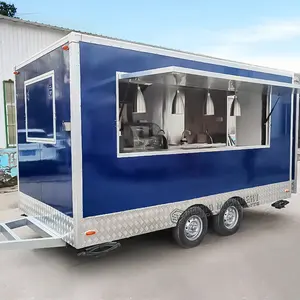
All categories
Featured selections
Trade Assurance
Buyer Central
Help Center
Get the app
Become a supplier

(1114 products available)





















remote dump trailer are essential components in the realm of agricultural machinery, serving as crucial tools for transporting various farm materials and equipment. These trailers are designed to withstand rigorous conditions and provide efficient solutions for the movement of goods across farms and fields. With features tailored to meet the diverse needs of agricultural operations, remote dump trailer play a significant role in enhancing productivity and streamlining farm logistics. As the agricultural industry evolves, the demand for versatile and durable remote dump trailer continues to grow, prompting manufacturers to innovate and refine their offerings to meet modern requirements.
The diversity of remote dump trailer available on the market caters to a wide range of agricultural applications. Common types include flatbed trailers, dump trailers, and livestock trailers. Flatbed trailers are highly versatile, ideal for transporting hay bales, machinery, and other bulky items. Dump trailers are designed with hydraulic systems to facilitate the easy unloading of soil, gravel, or crop residues. Livestock trailers are specialized for the safe and efficient transportation of animals, equipped with ventilation systems and secure compartments. Each type of remote dump trailer is engineered to meet specific agricultural needs, ensuring optimal performance and reliability in various farming environments.
remote dump trailer offer a range of functionalities that make them indispensable in agricultural operations. They provide robust solutions for carrying heavy loads, with features such as reinforced axles, durable tires, and adjustable hitches to accommodate different types of tractors and towing vehicles. Many remote dump trailer are equipped with advanced braking systems and lighting for safety during transportation. Additionally, some models include sidewalls or cages for added protection and containment of materials. The adaptability of remote dump trailer to various terrains and weather conditions makes them a vital asset for farmers looking to optimize their logistics and transport efficiency.
The construction of remote dump trailer involves the use of high-quality materials to ensure durability and longevity. Typically, these trailers are built with steel or aluminum frames, providing a strong foundation to withstand heavy loads and harsh environmental conditions. The flooring of remote dump trailer often consists of treated wood or metal to prevent wear and ensure stability during transport. Additionally, protective coatings are applied to resist corrosion and extend the lifespan of the trailer. The choice of materials impacts the trailer's weight, strength, and resistance to weather, allowing manufacturers to tailor remote dump trailer to specific agricultural applications and preferences.
Effective use and maintenance of remote dump trailer are crucial for ensuring their longevity and performance. Regular inspections should be conducted to check for signs of wear, such as tire pressure, brake functionality, and hitch security. Lubricating moving parts and joints can prevent rust and enhance the operational efficiency of the trailer. When using remote dump trailer, it's important to adhere to load capacity guidelines to prevent damage and ensure safe transport. Proper storage, such as covering or sheltering from extreme weather, can also extend the lifespan of the trailer. By following these maintenance and usage tips, farmers can maximize the benefits of their remote dump trailer and ensure reliable service throughout the farming season.
Selecting the right remote dump trailer for your agricultural needs involves careful consideration of several factors. The size and capacity of the trailer are paramount, as they must align with the volume and weight of the materials or equipment you intend to transport. It's important to evaluate the towing capacity of your existing machinery to ensure compatibility with the trailer's load requirements. Additionally, the terrain on which the trailer will be used plays a crucial role in your decision. For farms with uneven or rugged terrain, robust suspension systems and durable tires on remote dump trailer are essential to ensure stability and safety.
Another key factor in choosing remote dump trailer is the type of materials you plan to transport. Different trailers are optimized for specific loads, such as flatbed trailers for oversized machinery or livestock trailers equipped with ventilation for animal welfare. Consideration of the trailer's construction materials, such as steel or aluminum, is also important, as these materials impact the trailer's weight and durability. Furthermore, features like hydraulic lifts or sidewalls can enhance the functionality of remote dump trailer, making them more versatile for various agricultural tasks.
When selecting remote dump trailer for livestock transport, it's crucial to focus on features such as ventilation systems to ensure adequate airflow and prevent overheating. Secure compartments and non-slip flooring are also important to safeguard animal welfare during transit. Additionally, easy-to-clean surfaces and sturdy construction are vital to maintain hygiene and durability.
Determining the correct size of remote dump trailer depends on the types and quantities of materials or equipment you plan to transport. Assess the maximum load capacity of your towing vehicle and consider the volume of goods to ensure the trailer can accommodate them safely. Consulting with manufacturers or suppliers can provide guidance on matching trailer dimensions to your specific agricultural operations.
To prolong the life of remote dump trailer, regular maintenance is essential. This includes checking tire pressure, inspecting brakes, and ensuring hitch security. Lubricating moving parts and addressing any signs of rust or wear promptly can prevent long-term damage. Proper storage, such as keeping the trailer sheltered from harsh weather, also contributes to its longevity.
Yes, many remote dump trailer can be customized to suit particular agricultural needs. Options such as adjustable hitches, specialized compartments, and additional safety features can be tailored to enhance the trailer's functionality. Customization allows farmers to optimize their trailers for specific tasks, improving efficiency and safety in their operations.
Using remote dump trailer in varied terrains can present challenges such as maintaining stability on uneven ground and navigating tight spaces. Trailers with robust suspension systems and durable tires are better equipped to handle such conditions. Additionally, ensuring that the trailer's load is evenly distributed can help prevent tipping or damage during transport across challenging landscapes.